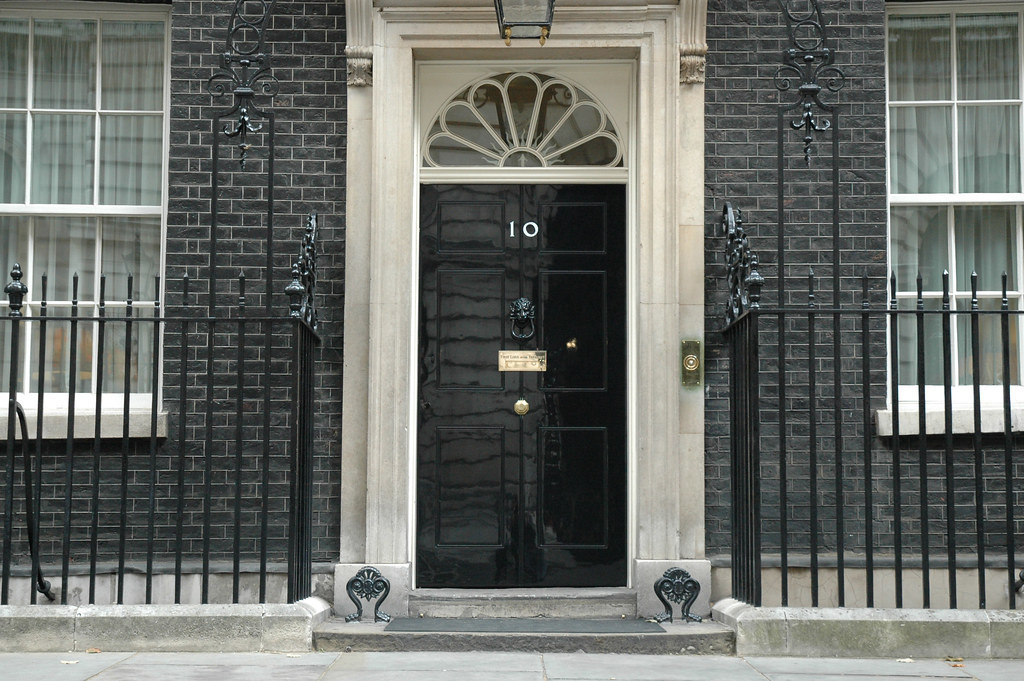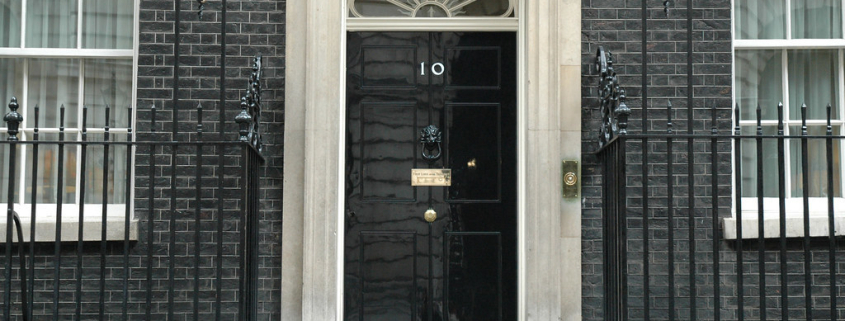“A disaster from the start”: Students, faculty weigh in on British political crisis

Liz Truss is officially the shortest serving British prime minister in history, serving only 45 days in office. Truss’ successor, Rishi Sunak, became the first person of color to serve in the position. (Photos courtesy of UK Prime Minister via Creative Commons and Chris McAndrew via Creative Commons)
After serving as British Prime Minister for just 45 days, Liz Truss resigned from office Oct. 20, making her the shortest serving prime minister in British history. Her replacement, Conservative Rishi Sunak, has also made governmental history in the Isles, becoming the first person of color and of Indian descent to lead the country.
Truss’ resignation follows a failed tax-cutting budget geared towards the wealthy that disrupted financial markets and sparked controversy within the Conservative Party. Sunak, ushered in as prime minister a week after Truss stepped down, warned his country of strenuous economic conditions and difficult decisions ahead, pointing to the “mistakes” of his predecessors.
Sunak’s premiership on 10 Downing Street began shortly after inflation skyrocketed and the value of the British Pound fell to its lowest level since 1985.
Abba Wada, a sophomore from London studying industrial and systems engineering, believes that Truss’ resignation was appropriate, and said that her plans for reviving the country’s economy through tax cuts were undefined and therefore unattainable.
“I believe Rishi Sunak will adopt a completely different approach from Truss in his new role as Prime Minister,” Wada said. “Sunak is far more concerned with maintaining the stability of the poor strata of the British population in contrast to … [Truss’] first goals that involved reducing the growing tax burdens on the wealthy.”
Douglas Becker, an associate professor of political science, international relations and environmental studies at USC, said he believes that Sunak is an upgrade from Truss in that he’s not going to implement the same tax cuts but worries that he will be unable to navigate Britain’s crumbling economic situation.
“One of the challenges here is that the U.K. faces this deep economic crisis, and it’s going to take quite some time [to revive]. The gut reaction is austerity,” Becker said. “[But] right now, I think austerity will be disastrous because we are coming out of a pandemic … [Great Britain] actually needs a political consensus to make some very difficult choices, and they can’t do so under the current circumstances.”
Nick Charles Currie, a senior majoring in journalism and a close follower of British politics, had trouble finding positives in Truss’ premiership.
“[Truss] was a very confusing choice at the time, and it’s good that she’s gone for the country,” Currie said. “It was just — it was a disaster from the start.”
Though relieved by Truss’ resignation, Currie has little faith in Sunak’s premiership. Currie, while recognizing the achievement in Sunak being the first British Asian prime minister and supporting Sunak far more than he did Truss, mentioned being hesitant to fully back the new prime minister.
“He’s still not good. There was a leaked audio clip where [Sunak] talks to a very rich area, saying we need more money going to places like these instead of deprived urban areas … That’s bad,” Currie said.
Despite the flaws that Currie sees in Sunak, he said that Sunak’s adaptability, especially in his time as Chancellor of the Exchequer during the coronavirus pandemic, will enhance his premiership with the looming economic crisis.
“Rishi Sunak, to his credit, is malleable, and that is one of the big things in his favor, because ideologically he is similar to Liz Truss,” Currie said. “But Sunak as Chancellor of the Exchequer in charge of the economy did not act [impulsively]. He was Chancellor during COVID, and he was willing to expand welfare [for Britons] … he’s willing to adjust to what the circumstances are.”

Among the changes that Sunak has made in the days since his appointment is resurrecting a fracking ban that Truss had eliminated during her premiership. Truss’ earlier announcement that she would lift a ban on fracking was met by resistance from members of parliament on both sides of the aisle, who worried about the environmental costs that the move would produce.
“A [climate change conference] is coming up, and it’s easy to expect that [Britain] will take a little bit more of an aggressive position, in part because there is a small island coalition that’s been driving for stronger action on climate change, and the U.K. wants to be identified [as a leader],” Becker said. “[The ban on fracking] might be more symbolic than anything else.”
Wada also praised Sunak’s commitment to protecting the environment as well as his interest in cryptocurrency, which Wada said could be beneficial in terms of restricting climate change through reducing the production of paper money.
“I’m excited for Sunak to assume the role of Prime Minister because he’s interested in launching … Central Bank for Digital Currency, so digital currency for the U.K. would be offered by the official Bank of England,” Wada said. “[Sunak] is trying to place … economic stability and confidence at the heart of the government agenda.”

